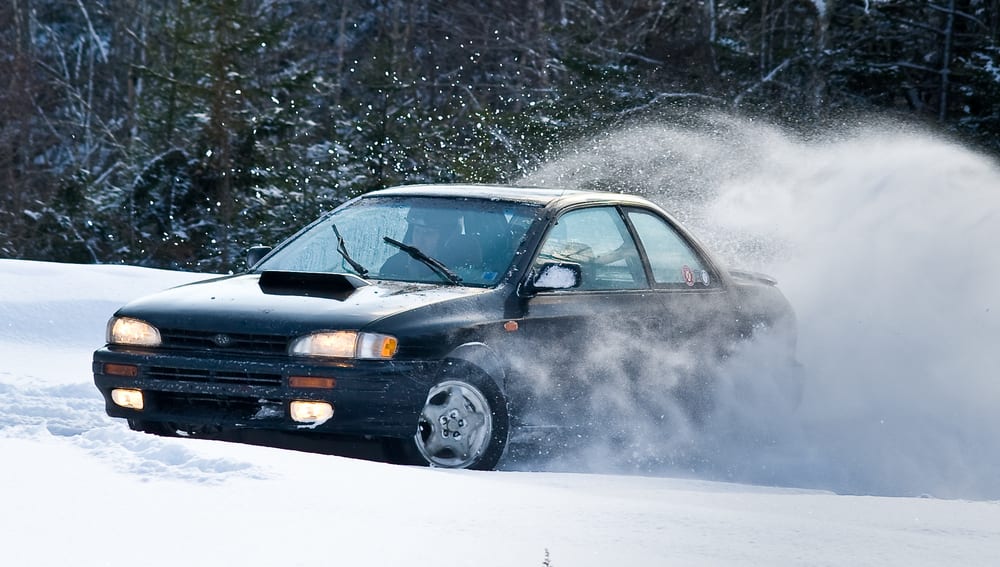

Fishtailing is a scary experience. This type of skidding, also known as over-steering, typically happens when the roadway is snowy, icy, and even in heavy rain. This kind of loss of vehicle control results when the front wheels turn and the rear wheels – rather than gripping the road – slide out past the turn. Fishtailing doesn’t just happen when going around corners – all that’s needed is a slight adjustment of the front wheels, such as that required to keep your car in your lane, and you can be skidding out in no time.
Whether it happens on snow, black ice, or on a flooded road the corrective actions are the same. The first step is to turn the wheel in the direction the tires are skidding (otherwise known as “turning into the skid”). This puts the rear end back in line with the front tires, allowing the car to continue in a straight line. In other words, if your rear end comes over toward the driver side, turn the wheel to the left. Conversely, if the back tires go the way of the passenger’s side, correct the steering wheel to the right.
The sooner in the skid that you start turning the wheel, the less severely you will need to turn. It’s vital to remain calm – if you panic and yank the steering wheel hard in the direction of the skid, you may just cause the rear to fishtail to the other side, which leads to a cycle of continuous flailing down the road, sometimes ending in an unintended 360 donut. Obviously you want to prevent this potential hazard to your own life and that of other drivers.
The other important aspect of correcting a fishtailing car is that you should slow your speed of travel and avoid stomping on the brakes. When you hit the brakes it sends the energy that propels the car to the rear, which will send the vehicle further sideways, or into a complete turnaround.
To summarize:
- Steer gently into the direction of the skid, beginning the correction as early in the slide as possible.
- Keep your foot off the brake pedal.
- Slow your rate of speed.
If you do fishtail, it’s likely the result of traveling too fast for conditions. Continue your travel at an adjusted rate appropriate for the weather. All-wheel and four-wheel drive vehicles can help minimize fishtailing, so keep this in mind when car shopping. If you have more questions about fishtailing or driving in certain conditions, [Ask a Mechanic] and YourMechanic would be happy to help you.



